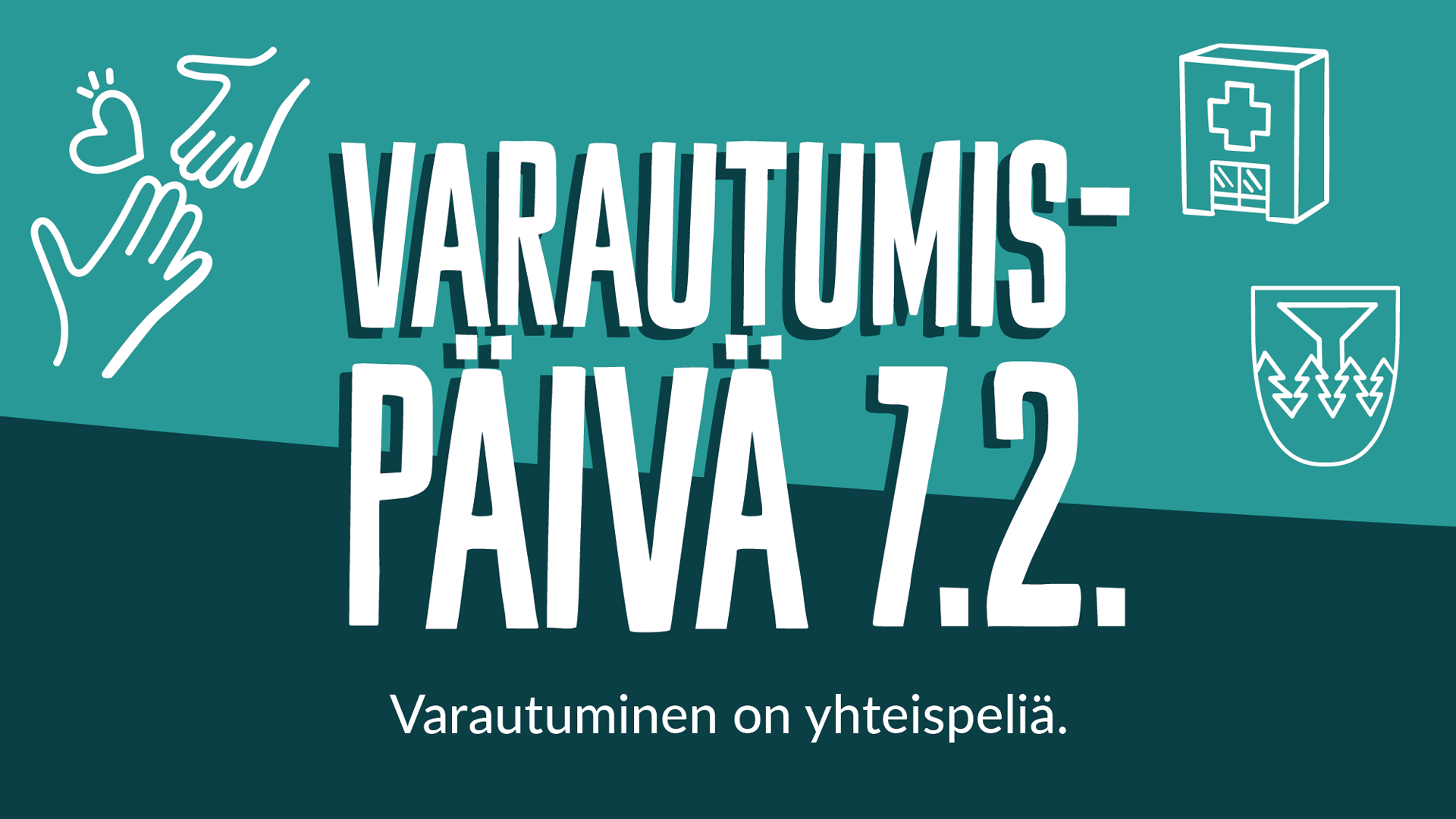On Preparedness Day, the City of Tampere explains how itself prepares and how you should prepare for emergencies
The date of 7 February reminds us that every household should be prepared to survive for 72 hours on its own in the event of a crisis, for example without electricity or running water. Self-preparedness brings peace of mind, knowing that you can cope without outside help in the event of a disruption. It helps emergency services and authorities to focus on the most serious incidents.
In the most everyday cases, preparedness is needed for the heavy snowfall and storms brought on by a changing climate. Unplowed roads or slippery conditions can trap people whose mobility is fragile or requires an assistive device.
The city has prepared for crises in many ways
Preparedness by public authorities is laid down in legislation. In addition, national and regional decisions, guidelines, strategies, risk assessments and recommendations guide municipal emergency planning and preparedness. For example, according to the Preparedness Act, municipalities must ensure, among other things, through preparedness plans and advance preparations, that their tasks can be carried out as smoothly as possible even in exceptional circumstances.
Contingency planning establishes the management systems and operating principles that safeguard the operation of the City of Tampere and its management in all circumstances. Preparedness is therefore about anticipation rather than reaction.
The mayor is in charge of emergency management
In the event of an emergency, the mayor may be granted decision-making powers to safeguard basic functions and normalise the situation. The Mayor always leads the city's activities in emergency situations, together with the management team. The management team may also be supported by a separate Situation Group under the authority of the Director of Risk Management and Security. The mayor and the management team will also coordinate the city's crisis communication.
Self-preparation is important
Many of the disruptions that occur in normal circumstances are things you can prepare for at home. In crisis situations, the resources of the authorities are stretched, so help cannot reach everywhere, at least not very quickly. Possible power cuts and telecoms disruptions also affect payment connections, so cash should always be kept to hand if possible.
Households' own preparedness matters and this is what Preparedness Day wants to remind us.
These supplies should be found in every home:
- Enough food for the whole family. You don't need a separate emergency store, you can use the same ingredients as usual, as long as they have a good shelf life. The important thing is that food is prepared quickly and with little water. Preferably it can be eaten uncooked. Don't forget to store food for pets!
- Clean water. Water can be stored in containers with lids or jerry cans, for example, which can also be used to collect it from water points. Bottled water from shops will last for several years if unopened.
- A flashlight in case of power cuts. But a flashlight alone is not enough, there must also be working batteries inside.
- Backup power source for charging batteries and mobile phone
- Candles illuminate and warm, as long as you have matches or a lighter to light them. Remember to take care of fire safety!
- Trash bags. During a water cut, trash bags are used as a toilet by placing the bag at the mouth of the toilet bowl..
- Wet wipes for hand cleaning
- Toilet paper
- Prescription medicines and pain killers
- A bucket with a lid
- Extinguishing blanket
- First aid kit
- Battery radio




